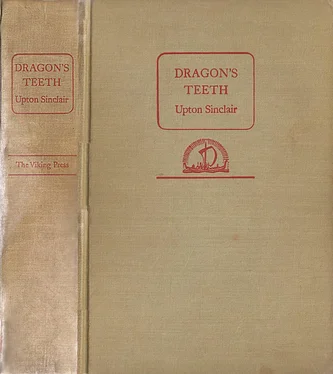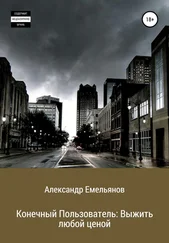Пользователь - o 3b3e7475144cf77c
Здесь есть возможность читать онлайн «Пользователь - o 3b3e7475144cf77c» весь текст электронной книги совершенно бесплатно (целиком полную версию без сокращений). В некоторых случаях можно слушать аудио, скачать через торрент в формате fb2 и присутствует краткое содержание. Жанр: Старинная литература, на русском языке. Описание произведения, (предисловие) а так же отзывы посетителей доступны на портале библиотеки ЛибКат.
- Название:o 3b3e7475144cf77c
- Автор:
- Жанр:
- Год:неизвестен
- ISBN:нет данных
- Рейтинг книги:4 / 5. Голосов: 1
-
Избранное:Добавить в избранное
- Отзывы:
-
Ваша оценка:
- 80
- 1
- 2
- 3
- 4
- 5
o 3b3e7475144cf77c: краткое содержание, описание и аннотация
Предлагаем к чтению аннотацию, описание, краткое содержание или предисловие (зависит от того, что написал сам автор книги «o 3b3e7475144cf77c»). Если вы не нашли необходимую информацию о книге — напишите в комментариях, мы постараемся отыскать её.
o 3b3e7475144cf77c — читать онлайн бесплатно полную книгу (весь текст) целиком
Ниже представлен текст книги, разбитый по страницам. Система сохранения места последней прочитанной страницы, позволяет с удобством читать онлайн бесплатно книгу «o 3b3e7475144cf77c», без необходимости каждый раз заново искать на чём Вы остановились. Поставьте закладку, и сможете в любой момент перейти на страницу, на которой закончили чтение.
Интервал:
Закладка:
Bremerhaven by the night train and to the yacht by taxis. Just as they reached the
dock a group of Brownshirts stopped them and told Papa that he was under arrest. Papa
asked, very politely, if he might know why, and the leader of the troop spat directly in
his face and called him a Jew-pig. They pushed him into a car and took him away,
leaving the others standing aghast. They didn't dare go on board the yacht, but
wandered along the docks, carrying their bags. They talked it over and decided that
they could do no good to Papa by getting themselves arrested. Both Freddi and Rahel
were liable to be sent to concentration camps on account of their Socialist activities; so they
decided to travel separately to Berlin and stay in hiding until they could get word to their
friends.
III
Freddi said: "I had only a little money when I was going on board the yacht, and I had to pay
my fare back here."
Lanny took out his billfold and wanted to give him a large sum, but he said no, it might be
stolen, or, if he was arrested, the Nazis would get it; better a little bit at a time. He started to
say that Papa would make it all good, but Lanny told him not to be silly; whatever he needed
was his.
"Where are you going to stay?" asked Irma, and he said he would join the crowd in die
Palme, a refuge for the shelterless; it would be pretty bad, but it wouldn't hurt him, and no
one would pay any attention to him there, no one would call him a Jew-pig. He hoped the wait
wouldn't be too long.
Lanny had to tell him it might be quite a while. His activities would be in the higher circles,
and things did not move rapidly there; you had to apply the social arts. Freddi said: "I hope
poor Papa can stand it."
"He will be sure that we are doing our best," replied Lanny; "so at least he will have hope."
The American didn't go into detail concerning his plans, because he feared that Freddi might
be tempted to impart some of it to his wife or his mother; then, too, there was the fearful
possibility that the Nazis might drag something out of him by torture—and he surely wouldn't
tell what he didn't know. Lanny said: "You can always write or call me at the hotel and make an
appointment to show me some art."
They contrived a private code. Pictures by Bouguereau would mean that everything was all
right, whereas Goya would mean danger. Lanny said: "Think of something to say about a
painting that will convey whatever you have in mind." He didn't ask the addresses of the other
members of the family, knowing that in case of need they, too, could write him or phone him
about paintings. Freddi advised that they should meet as seldom as possible, because an
expensive automobile driven by foreigners was a conspicuous object, and persons who got into it
or out of it might be watched.
They stopped for a while on a quiet residence street and talked. Freddi's mind was absorbed by
the subject of concentration camps; he had heard so many horrible stories, some of which he
couldn't repeat in Irma's presence. He said: "Oh, suppose they are doing such things to Papa!"
Later he said: "Have you thought what you would do if you had to stand such things?"
Lanny had to answer no, he hadn't thought much about it. "I suppose one stands what one
has to."
Freddi persisted: "I can't help thinking about it all the time. No Jew can help it now. They
mean it to break your spirit; to wreck you for the rest of your life. And you have to set your spirit
against theirs. You have to refuse to be broken."
"It can be done," said Lanny, but rather weakly. He didn't want to think of it, at least not
while Irma was there. Irma was afraid enough already. But the Jewish lad had two thousand
years of it in his blood.
"Do you believe in the soul, Lanny? I mean, something in us that is greater than ourselves? I
have had to think a lot about it. When they take you down into the cellar, all alone, with
nobody to help you—you have no party, no comrades—it's just what you have in yourself. What I
decided is, you have to learn to pray."
"That's what Parsifal has been trying to tell us."
"I know, and I think he is right. He's the one they couldn't conquer. I'm sorry I didn't talk
more about it with him while I had the chance."
"You'll have more chances," said Lanny, with determination.
Parting is a serious matter when you have thoughts like that. Freddi said: "I oughtn't to keep
you from whatever you're planning to do. Put me off near a subway entrance and I'll ride to die
Palme."
So they drove on. Lanny said: "Cheerio," English fashion, and the young Jew replied:
"Thanks a million," which he knew was American. The car slowed up and he stepped out, and
the great hole in the Berlin sidewalk swallowed him up. Irma had a mist in her eyes, but she
winked it away and said: "I could do with some sleep." She too had learned to admire the English
manner.
IV
The Reichstag met in the Kroll Opera House that afternoon and listened to Adolf Hitler's
speech on foreign affairs. The speech took three-quarters of an hour and immediately
afterward Goring moved approval, which was voted unanimously, and the Reichstag
adjourned. Soon afterward the newsboys were crying the extra editions, and there was the full
text, under banner headlines. Of course these gleichgeschaltete papers called it the most
extraordinary piece of statesmanship.
Lanny glanced through it swiftly, and saw that it was a speech like none other in the Führer's
career. It was the first time he had ever read a prepared address; as it happened, the
Wilhelmstrasse, the German foreign office, had put pressure on him and persuaded him that there
was real danger of overt action by France. The Fatherland had no means of resisting, and
certainly it was the last thing the infant Nazi regime wanted.
So here was a new Hitler. Such a convenient thing to be able to be something new whenever
you wished, unhampered by anything you had been hitherto! The Führer spoke more in sorrow
than in anger of the wrongs his country had suffered, and he told the Reichstag that he was a man
utterly devoted to peace and justice among the nations; all he asked of the rest of the world was
that it should follow the example of Germany and disarm. There was to be no more "force"
among the nations; he called this "the eruption of insanity without end," and said that it would
result in "a Europe sinking into Communistic chaos."
France and Britain, which had been worried, breathed a sigh of relief. The Führer really
wasn't as bad as he had been painted; his soup wasn't going to scald anybody's tongue. He would
settle down and let others write his speeches for him and govern the country sanely. To the
diplomats and statesmen of foreign lands it was obvious that a mere corporal and painter of
picture-postcards couldn't manage a great modern state. That called for trained men, and
Germany had plenty of them. In an emergency they would take control.
Lanny wasn't sure about it; but he saw that today's speech was the best possible of omens for
the Robin family. Adi was singing low; he wouldn't want any family rows, any scandals going
out to the world; he was in a position where he could be mildly and politely blackmailed, and
Lanny had an idea how to set about it.
The telephone rang. His note to Heinrich Jung had been delivered promptly. Heinrich had
attended the Reichstag meeting, and now he was taking the first opportunity to call his friend.
Читать дальшеИнтервал:
Закладка:
Похожие книги на «o 3b3e7475144cf77c»
Представляем Вашему вниманию похожие книги на «o 3b3e7475144cf77c» списком для выбора. Мы отобрали схожую по названию и смыслу литературу в надежде предоставить читателям больше вариантов отыскать новые, интересные, ещё непрочитанные произведения.
Обсуждение, отзывы о книге «o 3b3e7475144cf77c» и просто собственные мнения читателей. Оставьте ваши комментарии, напишите, что Вы думаете о произведении, его смысле или главных героях. Укажите что конкретно понравилось, а что нет, и почему Вы так считаете.




